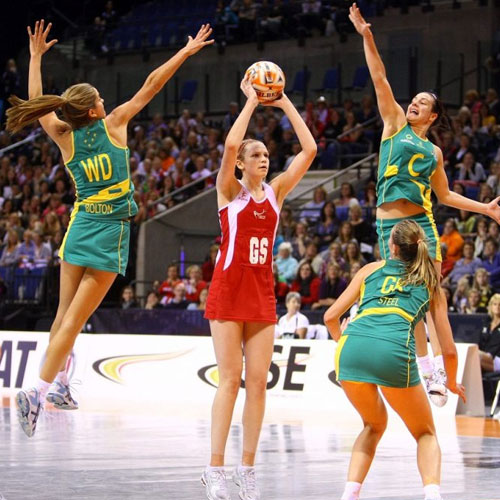Are your feet ready for winter sport?
- April 21, 2018
-
Jane Earl
- Uncategorized

With the winter sports season about to start, it’s important to make sure you are kitted out with appropriate footwear. Soccer, netball, hockey and running place unique demands on the lower limb, and proper footwear is an integral part of injury prevention. Previous posts have discussed running shoes and soccer cleats, so the focus of this article will be netball shoes.
Netball Shoes
Netball is a high impact sport involving sudden stops and changes in direction. For this reason the sport has a high incidence of ankle injuries, which are more common in players not wearing the right footwear. It is not appropriate to wear runners for netball as runners generally have a lower density sole and air cushioned heels. In netball you need a shoe with a firm rubber sole which wraps around the shoe for added stability during side to side movements. Also look for a firm heel counter. Test this by pressing on the back of the shoe. It should be able to resist a reasonable amount of pressure.
Consideration should also be given to the last of the shoe. As a general rule, a foot which ‘rolls in’ excessively (pronation) needs a straight last, while a neutral foot requires a curved last. Running shoe manufacturers produce dual density soles providing shock absorption at heel contact, and stability through late stance. You should consult one of our podiatrists for professional assessment of your individual needs.
Make sure the shoe is the correct size. I know it sounds obvious, but when was the last time you had your feet professionally measured? When it comes to netball and running shoes, there should be about an inch or thumbs width between the end of the longest toe (noting this may not be the ‘big toe’) and the end of the shoe. Shoes that are too small may cause bruising of the nail bed and ingrowing toe nails. Shoes which are too big cause heel slippage, blisters and increased risk of injury. We recommend replacing your shoes at the beginning of each season and buying them from a specialist store such as The Athlete’s Foot or The Runners Shop where staff are trained in footwear fitting.
If you wear foot orthoses, it may be worth getting these checked by your podiatrist at the beginning of the season. Excessive wear and tear may reduce their effectiveness in supporting your feet. Most podiatrists recommend an orthotic review every 12 months for adults, and every 6 months in children.
Overuse injuries
Young athletes, especially those involved in multiple sports, may experience overuse injuries as the season progresses. Parents and coaches should be aware of any child who is limping or complaining of pain. Heel pain may be caused by trauma to the growth plate (Severs disease) or Achilles tendonitis, and knee pain is often associated with Osgood-Schlatter disease. Our podiatrists can help with the assessment and management of foot and leg pain in children.
Suite 8 (Ground Floor), 146 Scollay St, Greenway ACT 2900
6287 4889
6293 2325
[email protected]
ACT Podiatry : Advanced Foot & Ankle Centre
Canberra Podiatric Surgeon
Suites 16-17 (First floor) 14-16 Brierly St, Weston ACT 2611
6287 2818
6293 2325
[email protected]
ACT Podiatry : Advanced Foot & Ankle Centre
Canberra Podiatric Surgeon
Copyright © 2018, ACT PODIATRY | SEO by High Jump Digital

